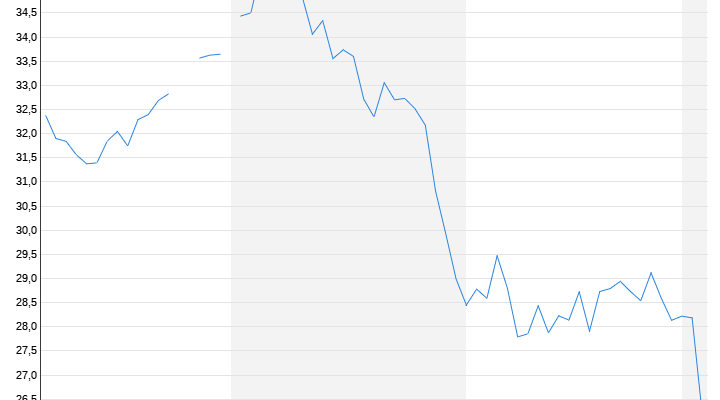Austerity and new strategy
Bayer is bracing itself against the flood of problems – deep red numbers
March 5, 2024, 10:45 a.m
Listen to article
This audio version was artificially generated. More info | Send feedback
The pharmaceutical giant Bayer is in crisis. Value adjustments are pushing Leverkusen deep into the red. The dividend will be cut to a minimum. With red pencil and new approaches to the glyphosate lawsuits, the situation should brighten up. Because in addition to all the problems, the DAX group also expects a step backwards operationally.
The pharmaceutical and agricultural group Bayer slipped deep into the red last year due to high write-downs in the agricultural division. But the difficult situation should be mastered without selling the division despite high debts. A renovation is “not now” on the agenda. Nevertheless, “we will remain open to everything,” said Bayer boss Bill Anderson. First of all, business development should be improved and more strategic flexibility created. Two billion euros should be saved annually by 2026. In addition, the company wants to pursue “new approaches inside and outside the courtroom” with a view to legal disputes in the USA in order to reduce risks and uncertainties.
Last year, as sales fell, there was a loss of 2.9 billion euros, as the DAX group also announced. In the previous year, Leverkusen earned almost 4.2 billion euros. Adjusted for currency and portfolio effects, revenue fell by 1.2 percent to 47.6 billion euros over the year. Operating income (Ebitda) before special items fell by more than 13 percent to 11.7 billion euros. As already announced, the shareholders will have to accept severe cuts in the dividend: it will be cut from 2.40 euros to 0.11 euros. This is the calculated minimum amount that Bayer must pay out according to the Stock Corporation Act as long as the company remains in the black according to HGB accounting.
“Look at topic from all angles”
For the current year, Bayer expects sales of between 47 billion and 49 billion euros, adjusted for currency effects. The operating result (Ebitda) before special items is expected to fall again – to 10.7 billion to 11.3 billion euros after adjusting for currency effects. At the end of 2024, net financial debt of 32.5 billion to 33.5 billion euros is targeted.
Bayer had already announced in January that there would likely be a significant reduction in personnel in Germany as part of the planned streamlining of administration and the desired acceleration of decision-making processes.
Despite the announced expansion of the approach in the case of the weed killer glyphosate, Bayer wants to continue to “vigorously defend itself” and challenge any negative judgment. “But it is clear that a defense strategy alone is not enough. We are looking at the issue from all angles.” The aim is “to complete this legal complex in the interests of our company and our customers”.
Bayer incurred the wave of lawsuits over the herbicide’s alleged carcinogenic effects when it took over the glyphosate developer Monsanto. Most recently, agreements were still pending for 54,000 of the total of around 167,000 registered claims. Bayer has always rejected the allegations against glyphosate. Authorities worldwide have classified the drug as non-carcinogenic. The World Health Organization (WHO) cancer research agency IARC rated the active ingredient as “probably carcinogenic” in 2015. Bayer is also facing numerous lawsuits over the chemical PCB, which was produced by Monsanto until 1977.
